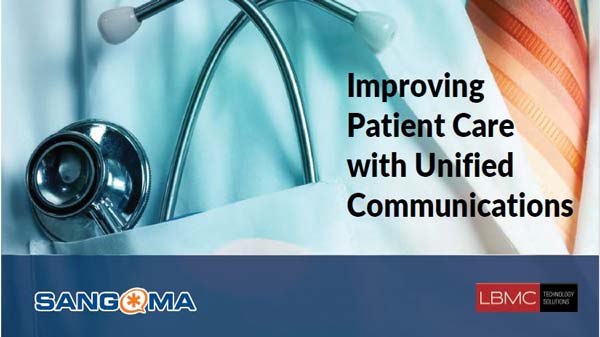With the introduction of the Health Insurance Portability and Accountability Act (HIPAA) of 1996, healthcare organizations everyone faced challenges pertaining to safeguarding the privacy of their patients’ personal health information. Since then, healthcare offices operate in a very different manner to maintain compliance of HIPAA regulations. One area that falls under that umbrella of compliance is telephone usage. With Unified Communication Platforms, healthcare providers are able to easily comply with the regulations and keep patient data confidential.
Eight ways healthcare providers can utilize a Unified Communications platform to comply with HIPAA regulations:
1. Data sharing
With network-wide encryption healthcare providers are able to share phone numbers, recordings, and various other data across multiple locations. This means that calls and information cannot be tapped on an IP network as offices share patient information easily, but most importantly, safely.
2. Global access
By utilizing a cloud system, healthcare offices are able to access calls from multiple locations across the globe. This means that remote employees are able to safely and efficiently assist patients, while also reducing patient wait times since there are more employees with access to the secure system. It also opens up the ability to employ bilingual staff that are ready to assist when needed via the global access capabilities.
3. EHR and patient information from PMS applications
Integrating a Unified Communication platform with PMS apps allows healthcare staff to have patient information at the tip of their fingers when they need it. This means that team members can more easily dial out to patients with click-to-dial functionality. Additionally, this complies with HIPAA requirements by ensuring that patients are always reached at their requested number.
4. Take your office anywhere
With softphone functionality, healthcare offices can operate anywhere they need to. Softphone allows any phone of computer to act as the telephone for a healthcare provider. When used to dial out, the patient will see the correct caller ID information that reflects that it is their care provider trying to reach them, and not the team members cell phone number or computer information. This is ideal for on-call staff, since it allows the team to take the medical office anywhere they are.

A VoIP business phone system needs to help you do more than answer calls. With unified communications, you can connect staff and patients in minutes, respond faster, have patient data at your fingertips from your office or from your mobile phone.
Avoid the bottleneck of appointment scheduling, prescription refills, and patient calls. Unified communications can help route and organize incoming calls keeping the office running smoothly at all times. Check out our e-book and see how LBMC Technology Solutions and Switchvox can improve your office communication.
Get your copy of the guide.
5. Easily see who is available
With organization wide visibility, employees are able to quickly see whether someone is available or not. This helps patients to be assisted much more quickly and efficiently, as it reduces their wait times and helps the provider to extend assistance at a much quicker pace.
6. Video Calling
Extend your reach and help under-served areas by implementing video calling. HIPAA compliant video calls allow practitioners to help their patients from remote locations. The ability to add kiosks that contain devices, such as stethoscopes and blood pressure monitoring, make medical assistance much more readily available to those who may not otherwise have access to it. Additionally, it allows doctors to extend their services to professionals while they are working through workplace medical programs.
7. Encourages Online Portals
By implementing video conferencing, many providers have found that their patients are more inclined to utilize online portals. These portals increase the level of care given to patients by allowing them to get lab results, send secure messages to doctors, schedule appointments, and track their medical records in a self-service manner. This elevated care results in happier patients and a wider reach by the physicians.
8. Easily retrieve recordings
Hosted VoIP services offer call recording options that assist medical offices in a variety of ways. With this system, providers can access prerecorded trainings for employees, quickly access recordings from remote visits, and listen to voicemails from anywhere. This level of documentation and recording capabilities also safeguards physicians by creating a medical record trail for each patient that is encrypted and securely shared among those that require access to them.
How can you tell if your telephone system is set up for HIPAA compliance?
To learn more about how your practice can sharpen their HIPAA compliance with a Unified Communications system, contact us to set up a complimentary consultation.
Content provided by LBMC Technology Solutions’ professional, Joe Cron.
